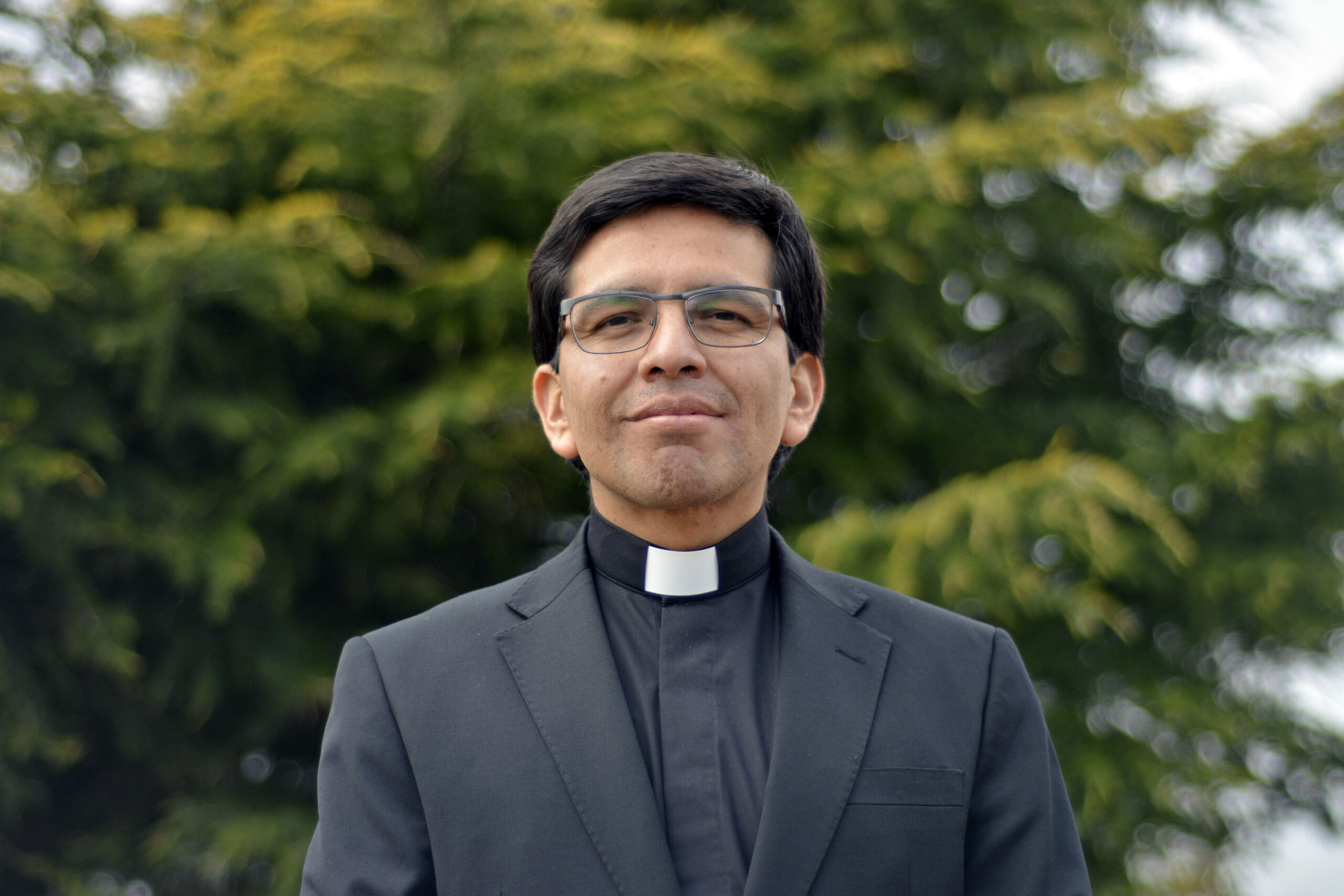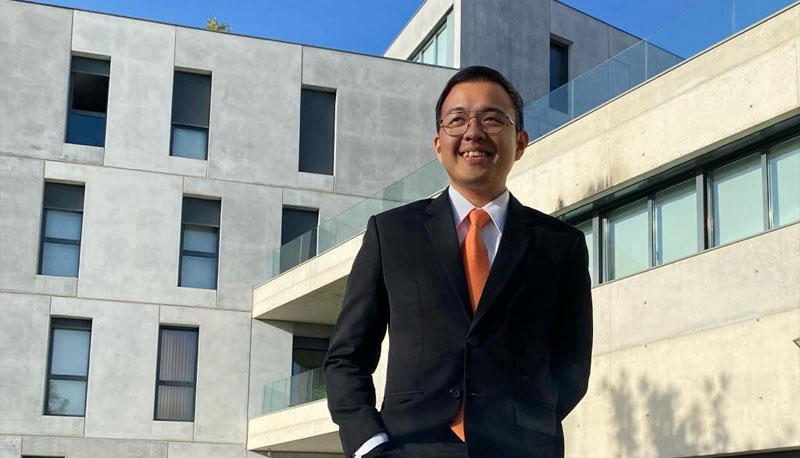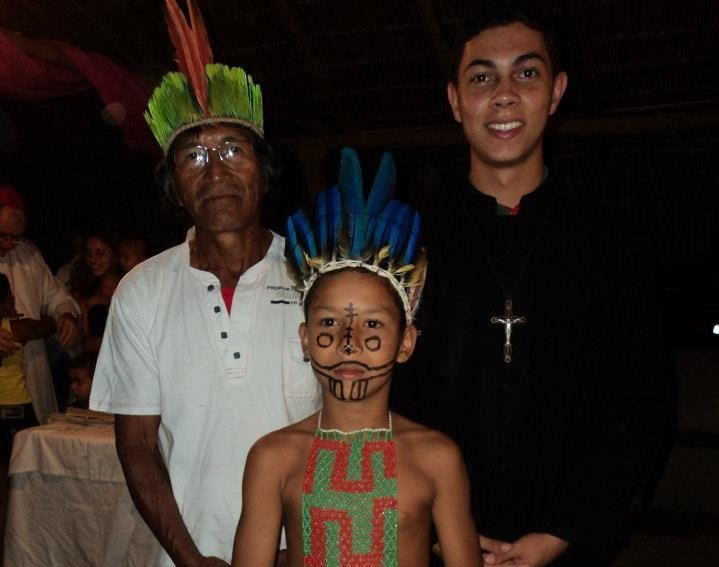
Bruno Correa de Almeida y Cesar Gomes Agostinho Junior, are two Brazilian seminarians who have just finished their theology studies at the International Seminary of Bidasoa (Pamplona). They return to their countries full of hope and gratitude.
Last June 9, Bruno and Cesar were two of the 17 seminarians who received the sacred vessel cases The CARF Foundation's Board of Trustees provides the funds so that they can celebrate Holy Mass in remote places, such as some of the indigenous villages they serve.
Bruno, 25 years old, is from Rubiata. His family lives in Itaguaru. His father is a civil servant and his mother is an early childhood education teacher. He has a 21-year-old brother who works in a produce store. Although his parents were not practicing, he received a Catholic education. He attended church thanks to his maternal and paternal grandmothers.
At the age of 13 he left home to attend high school in a state boarding school and there he had a deeper experience with God. He discovered the life of prayer thanks to the Charismatic Renewal. In 2013, during WYD, he left his career to enter the seminary.
"I discovered my vocation when I came in contact with the Lord, in intimacy with Him. It was at the university. I went to daily Mass in the mornings and took spiritual direction and confession seriously. One day the bishop asked me if I wanted to become a priest and proposed that I live with him for a year. I accepted. The second year I moved to the seminary in Rio de Janeiro to study philosophy and in 2017 I started theology in Bidasoa, which I just finished," Bruno relates.
Cesar, 28 years old, is from Nova Friburgo. He was raised in a Catholic family. His father died three years ago when he went to Spain to finish his education. He has always worked as a bricklayer. His mother has always worked in a bakery. They are three siblings.
"My family is simple, but it has taught us the greatest value that parents can give: love. My father and mother are an example, I have no doubt about my father's sanctity," he explains.
He had never considered a vocation to the priesthood before His dream was to be a soccer player, to which he was devoted body and soul. But some friends invited him to make a retreat for 3 days and that changed him a lot.
"I began to pray and frequent the sacraments. The joy that I used to have on the court I discovered now with the sacraments and helping others in the Church. My parish priest asked me if I had considered a priestly vocation and I said no, but this question stayed in my heart. A short time later I said yes and he invited me to a discernment day. The joy that I had when I was playing with my team, I took it to the Church and gave it to God," he says.
"To give one's life to God is a joy, it is to gain life, it is to have everything."
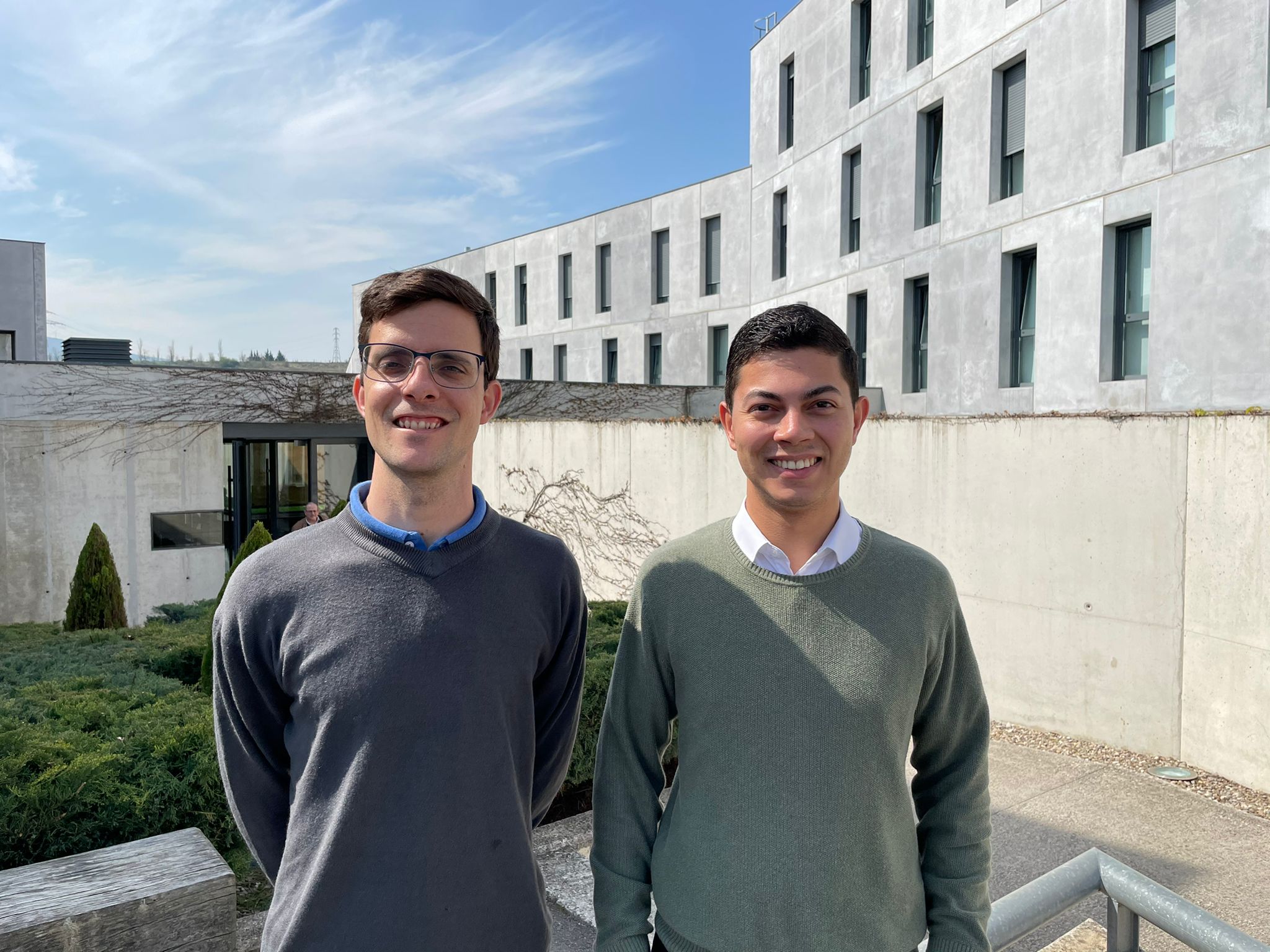
Cesar Gomes Agostinho Junior and Bruno Correa de Almeida tell how they discovered their vocation.
In 2013, during WYD, Bruno left his studies to enter the seminary. "I discovered my vocation when I got in touch with the Lord, in intimacy with Him. It was at the university.
Cesar exchanged the joy of the soccer field for the joy of the sacraments: "After a three-day retreat, I began to pray and frequent the sacraments. My parish priest asked me if I had considered a priestly vocation and I said no, but this question stayed in my heart. A short time later I said yes and he invited me to a discernment day. The joy that I had when I was playing with my team, I took it to the Church and gave it to God".
Bruno: "The best option for our life is to do God's will. God thought of us for something. We are always overcoming difficulties with his help. When we accept God's plan, we reach fulfillment, because we can be what God has really planned for us. And the state of joy we feel is incredible. I can put into action all the gifts God has given me. The approach to God is to let Him come into our life. He has put a desire for Him in our life and, therefore, we are missing something if we are not with God. He has come to give us life in abundance. To have God in our life is to have everything, even though health and money may be lacking".
Cesar: "Once a young man who went to confession to John Mary Vianney saw him crying after giving him absolution. The young man asked him why he was crying, and he answered: because young people do not cry for their sins. I believe that it must hurt all of us that young people turn their backs on God. I think we are living a crisis of generosity and young people are afraid to say Yes to the Lord, Yes to his will and his will. I was afraid to say Yes to God, I just wanted to play soccer. But when I said Yes to him, he gave me a joy that never ends. To give one's life to God is a joy, it is to gain life, it is to have everything.
Cesar: "The most important thing is that it was a meeting that raised many vocations. Here in Pamplona I had the opportunity to visit a monastery of Discalced Carmelite nuns. Talking to these nuns I asked them about their vocation and they told me that they were all fruits of the WYD in Brazil. They entered a monastery in Brazil and now they are in Pamplona. As an anecdote, I can tell something that left an impression on me: Pope Francis passed by the Seminary where I was and all the seminarians knelt down to receive his blessing when he passed by on the street. Someone asked us why we did that. And we answered: There are different ways of loving a person, we love the Pope because he is Christ for us. It is Christ who passes by and blesses us in the person of the Pope".
In the 1970s, the Church in Brazil was closely linked to political and social assistance issues, which led to a loss in the formation of the Catholic faith. Over the years, Christians who no longer depended on the Church's social assistance - replaced by the government's social projects - no longer recognize it as a reference for religious education. At the same time, we see the advance of Protestantism, which is pushing for religious education marked by demanding morals and sola scriptura.
In the heart of the Church, in the same period, the Catholic Charismatic Renewal (CCR), and in Brazil it is gaining great visibility. at the end of the 1990s and 2000s through the community and TV Canção Nova. They are an expression of a "lifelong" Catholicism of prayer and action and render a great service in the spiritual formation of Catholics through the media.
The Charismatic Renewal has always been under the shepherding of the Church up to the point of the foundation by Pope Francis of CHARIS. With the CCR, many other movements in the Church such as "Encontro de Casais com Cristo", Apostleship of Prayer are fundamental for evangelization. ad intra of the Church. It is people with little Catholic experience who change their confession. Therefore, a good Catholic formation is very necessary.
The concern of the bishops in Brazil is not so much focused on the growth of Protestantism, but rather on the growth of the Protestant Church.n the growing number of practical atheists and those indifferent to religion. Protestants share with us the same faith (we even unite in defending the good of life in the face of bills contrary to the Christian faith) even if they lack sacramental fullness. Atheists, on the other hand, are impervious and sometimes intolerant of religious presence.
"It is people with little Catholic experience who change their confession. That is why a good Catholic formation is very necessary."
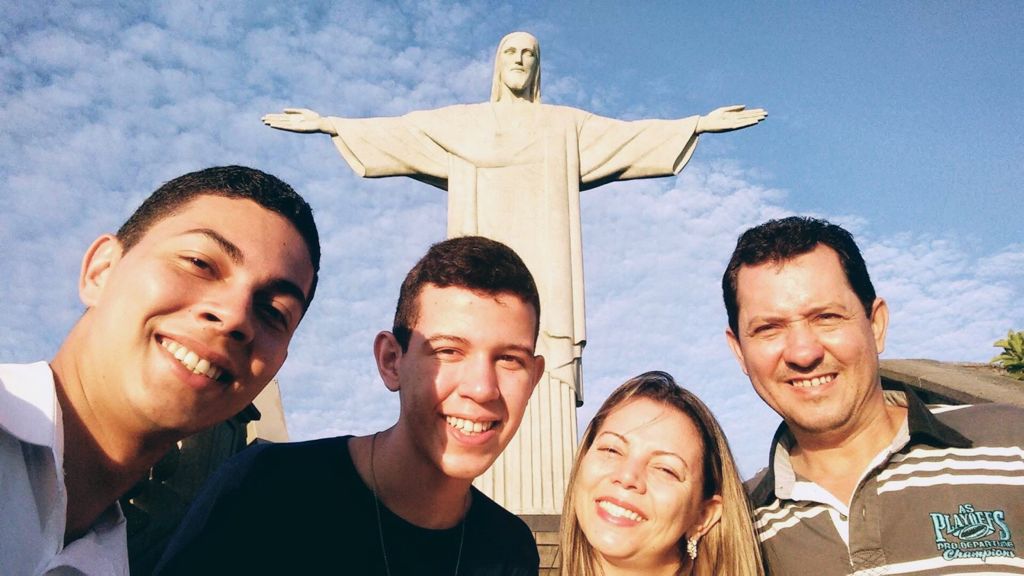
In the picture, Bruno is with his brother, mother and father at the Christ the Redeemer Sanctuary in Rio de Janeiro. His family lives in Itaguaru. His father is a civil servant and his mother is an early childhood education teacher. She has a 21-year-old brother who works in a produce store. Although his parents were not practicing, he received a Catholic education. He attended church thanks to his maternal and paternal grandmothers.
Regarding the needs in the Church, we point out what the Pope has been asking for: it is necessary that in each diocese there are people specialized in this matter, who are dedicated to welcome and listen to the victims of abuse practiced by clerics.
One of the keys to the prevention of child abuse is to support families, to promote and help them in the integral education of their children. Potential victims almost always come from a family. fragile family reality. The family is where we learn to see the other as a gift. A sign of this concern on the part of the Church is the Year of the Family that we began on March 19.
Brazil is a very large country with different ecclesiastical realities. Of course, the Amazon has its own particular challenges as a community of faith, so much so that it merited a synod convoked by the Pope.
As for all Catholics, the sacraments are of fundamental importance because they are the summit of the experience of our faith, but faith enters through the ear (Rom 10:17) and preaching is an instrument to move people to live in God's grace. That is why the Church sends missionaries to form communities with the Word. Some movements of the Church have such initiatives.
It is necessary to form the communities in those places so that they pray, maintain a living faith and Christian practice, and on our part, that we pray with them so that the Lord may raise priestly vocations. We believe - with the document "Dear Amazonia" - that the solution is not to loosen the demands with the candidates to the priesthood, but rather that the need for priests will be met when the need for priests isCatholics have such a lively faith that the warmth of the ecclesial community may impel young people to give themselves to God.
Bruno: "In my diocese there are two indigenous communities. Mass is celebrated once a month in addition to spiritual assistance, baptisms and confirmations. In their communities there are Catholic leaders who give them catechesis".
The numbers of victims and deaths are calamitous but, above all, the suffering of each family that loses someone to Covid. "We had to forbid my grandmother to watch the news so that she wouldn't fall into depression," Bruno laments.
The Church's greatest help in such a situation is "being there". Presence at the side of families suffering loss, helping to give a Christian value to suffering, the meaning of death, the sacraments ministered at the last hour to the dying, "weeping with those who weep" (Romans 12:15) and at the same time mourn the loss of their clergy (65 priests and 3 bishops). On the other hand, the Church has had to reinvent itself in its evangelizing mission to keep the faith alive in the hearts of the faithful: confessions and "drive-thru" Masses, some with reduced seating capacity, live broadcasts, online catechesis and blessings to hospitals by priests. The risk is that people lose awareness of the importance of community life and the reception of the sacraments.
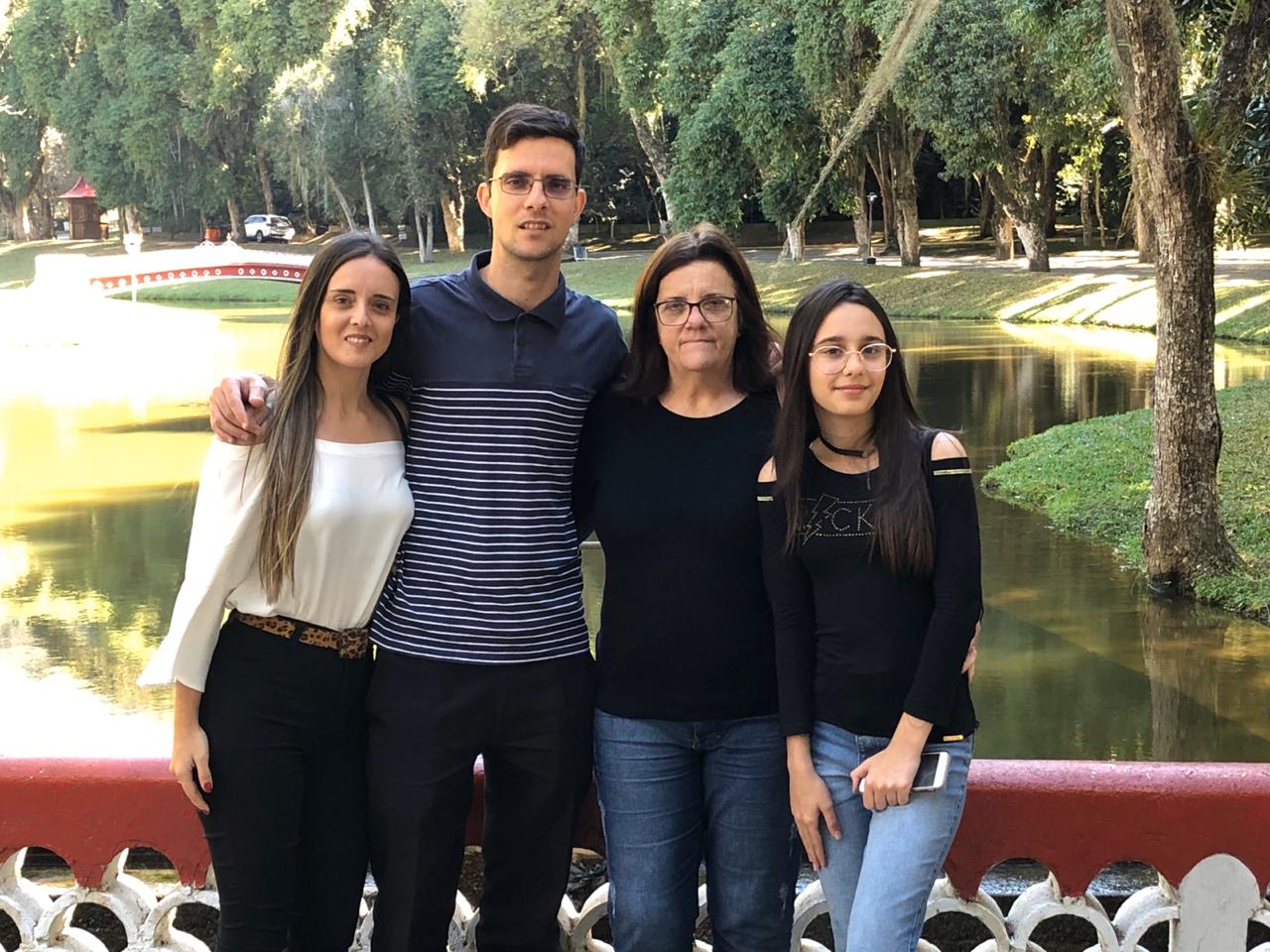
Cesar with his sister, mother and niece.
